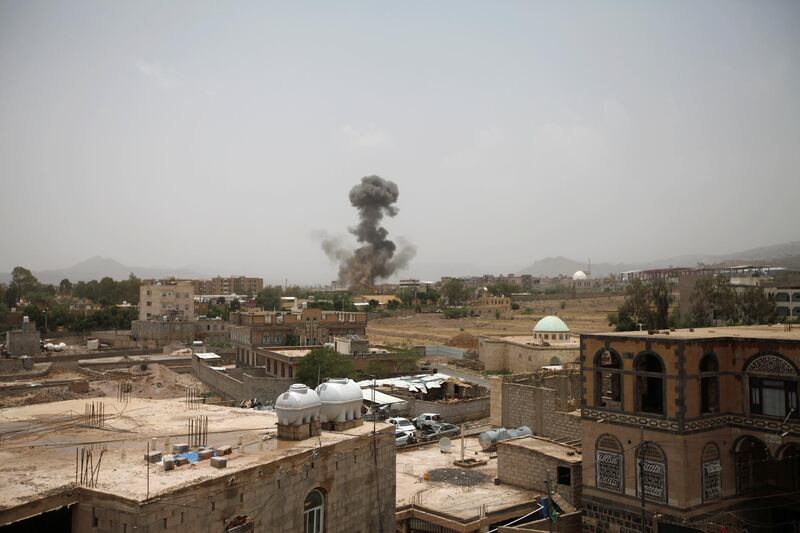Even as the UN announced delays for its peace talks for Yemen, the Trump administration remains laser focused on jump-starting the political process while reportedly considering a designation of the Houthi movement as a foreign terrorist organisation (FTO).
The Washington Post reported on Thursday that the White House is considering designating the rebels as a terror group in order to speed the end of the conflict and pressure Iran to cut support for the organisation.
However, current and former US officials did not confirm such plans. A US State Department official, speaking to The National on condition of anonymity, said the US position on Yemen and the conflict "has not changed."
“We have been urging all parties to come to the table and recognise that there’s no military victory that can be achieved in Yemen” he added.
______________
Read more:
UN aims for Yemen talks by year-end, not end of month
US calls for Yemen peace efforts as Hodeidah braces for renewed offensive
Opinion: Impetus to end Yemen war and relieve suffering of millions must be seized
Britain commits to leading fresh action on Yemen at UN Security Council
______________
Another US official said that Washington’s efforts are solely focused now in support of the UN Envoy Martin Griffiths.
“We reiterate our calls for a cessation of hostilities and for all parties to come to the table to find a peaceful solution to the conflict” the official said. UN plans to convene the parties have been pushed from November to the end of the year.
Debate on labelling the Houthis as foreign terrorist organisation is not new. The Obama administration had examined the issue in the past, and it has come up more vigorously since the Trump administration took office. An FTO designation would sanction the Houthis, prohibit any US contact with the group, and isolate them financially on the international arena.
Former US officials who served in Yemen, however, told The National that the decision remains unlikely since it would not achieve its desired objective of prompting a political solution in Yemen.
“I don’t think it makes sense” said Gerald Feierstein, a former US ambassador to Yemen. “Our issues with the Houthis concern their efforts to obstruct the political transition in Yemen and their military campaign both within Yemen and against Saudi Arabia” said Mr Feierstein, who now serves as director for government relations at the Middle East Institute. Designating them, he argued, would undermine efforts to negotiate a political resolution of the conflict.
Stephen Seche, vice president of the Arab Gulf States Institute, said he suspected that the push to designate the Houthis is coming from the White House and not the State Department. Mr Seche who also served as an Ambassador to Yemen from 2007 to 2010, said that such designation would not be as impactful given the local operation of the group.
“They’re not known for conducting international banking or travel, and they’re not vulnerable to such pressure…hence the practical impact may be minimal” Mr Seche said. He suggested that an FTO decision would, were it to be taken, complicate US efforts on the ground in engaging the Houthis, and deliver aid and humanitarian relief to areas under their control.
What such a designation may do, however, is remove congressional pressure on the administration in continuing its support role in the war in Yemen, explained Mr Seche. Then the administration would be seen as taking role in a fight against a terrorist organisation.
Fatima Al Asrar, a former Yemeni diplomat and a senior analyst at the Arabia Foundation, said that while the Houthis “are a non-state actor, who work openly against US interests, an FTO designation may complicate matters further.
“One of the major concerns is that it might impact Yemenis at large, including those who have no affiliation with Houthis or are forced to deal with them” Ms Al Asrar said.
“Houthis are a non-state actor, they work openly against US interests but this designation will not have any impact on their ability to operate.” Instead, “it may curtail UN agencies delivery of food and essential items in their areas which can have a catastrophic impact” Ms Al Asrar warned. The Yemeni expert favoured sanctioning separate individuals and entities in the group by the US Treasury as an alternative.
In Washington, the idea of designating the Houthis as a terrorist organisation is part of the policy debate within the administration. Any decision of that sort will involve careful deliberations by the State Department and its career diplomats, experts agreed, given the magnitude and impact beyond just punishing the Houthis.






